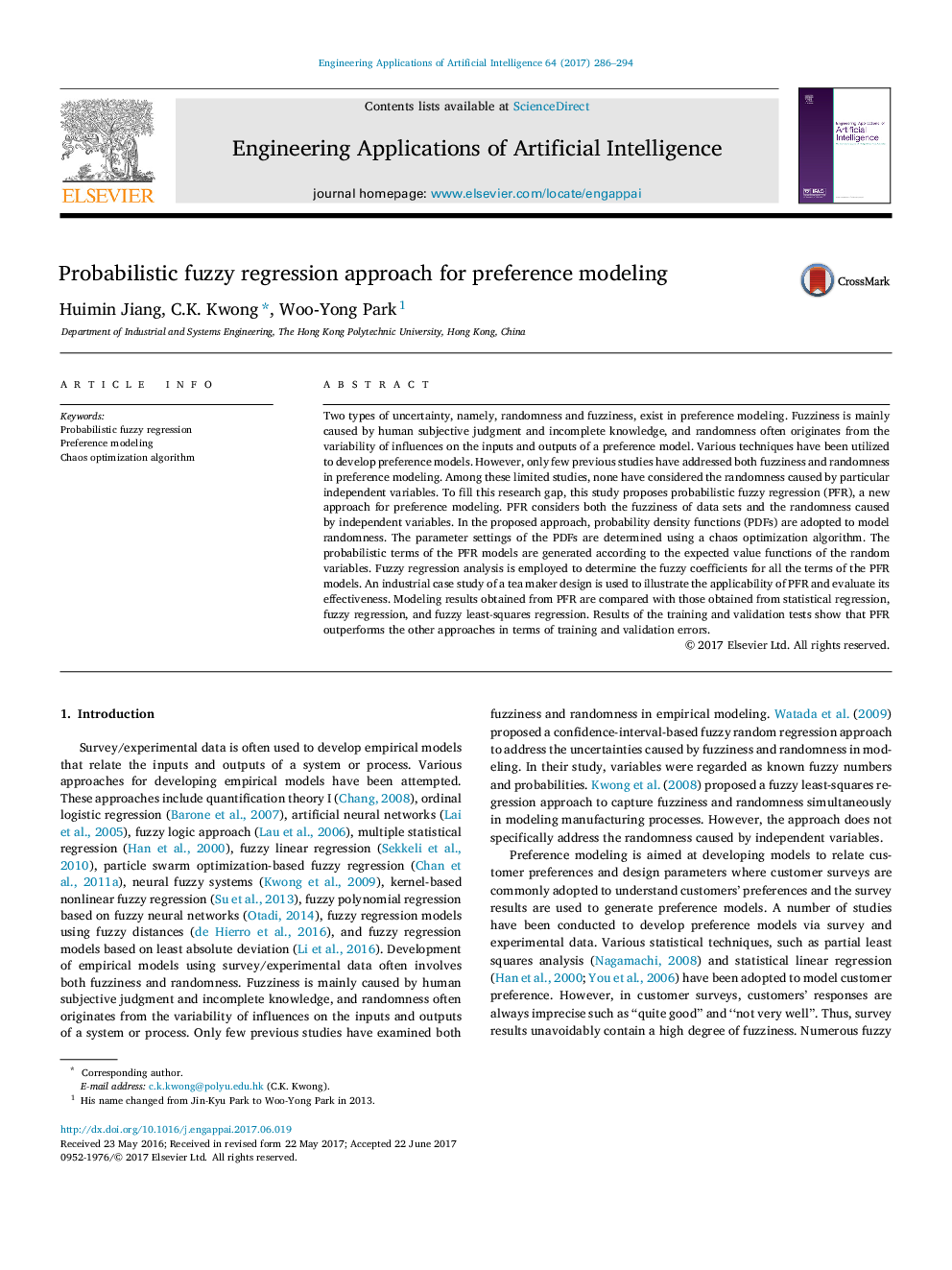| کد مقاله | کد نشریه | سال انتشار | مقاله انگلیسی | نسخه تمام متن |
|---|---|---|---|---|
| 4942663 | 1437414 | 2017 | 9 صفحه PDF | دانلود رایگان |
عنوان انگلیسی مقاله ISI
Probabilistic fuzzy regression approach for preference modeling
ترجمه فارسی عنوان
رویکرد رگرسیون فازی احتمالی برای مدل سازی اولویت
دانلود مقاله + سفارش ترجمه
دانلود مقاله ISI انگلیسی
رایگان برای ایرانیان
کلمات کلیدی
رگرسیون فازی احتمالی، مدل سازی اولویت، الگوریتم بهینه سازی هرج و مرج،
موضوعات مرتبط
مهندسی و علوم پایه
مهندسی کامپیوتر
هوش مصنوعی
چکیده انگلیسی
Two types of uncertainty, namely, randomness and fuzziness, exist in preference modeling. Fuzziness is mainly caused by human subjective judgment and incomplete knowledge, and randomness often originates from the variability of influences on the inputs and outputs of a preference model. Various techniques have been utilized to develop preference models. However, only few previous studies have addressed both fuzziness and randomness in preference modeling. Among these limited studies, none have considered the randomness caused by particular independent variables. To fill this research gap, this study proposes probabilistic fuzzy regression (PFR), a new approach for preference modeling. PFR considers both the fuzziness of data sets and the randomness caused by independent variables. In the proposed approach, probability density functions (PDFs) are adopted to model randomness. The parameter settings of the PDFs are determined using a chaos optimization algorithm. The probabilistic terms of the PFR models are generated according to the expected value functions of the random variables. Fuzzy regression analysis is employed to determine the fuzzy coefficients for all the terms of the PFR models. An industrial case study of a tea maker design is used to illustrate the applicability of PFR and evaluate its effectiveness. Modeling results obtained from PFR are compared with those obtained from statistical regression, fuzzy regression, and fuzzy least-squares regression. Results of the training and validation tests show that PFR outperforms the other approaches in terms of training and validation errors.
ناشر
Database: Elsevier - ScienceDirect (ساینس دایرکت)
Journal: Engineering Applications of Artificial Intelligence - Volume 64, September 2017, Pages 286-294
Journal: Engineering Applications of Artificial Intelligence - Volume 64, September 2017, Pages 286-294
نویسندگان
Huimin Jiang, C.K. Kwong, Woo-Yong Park,
